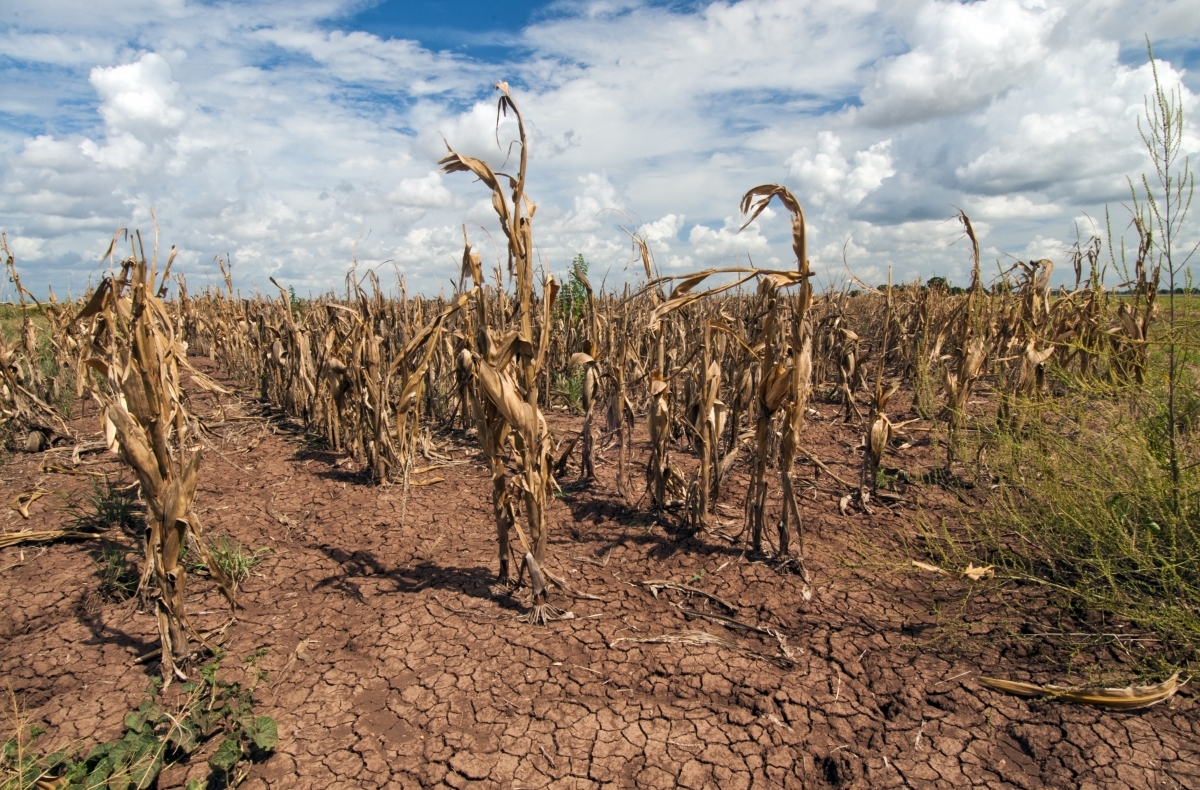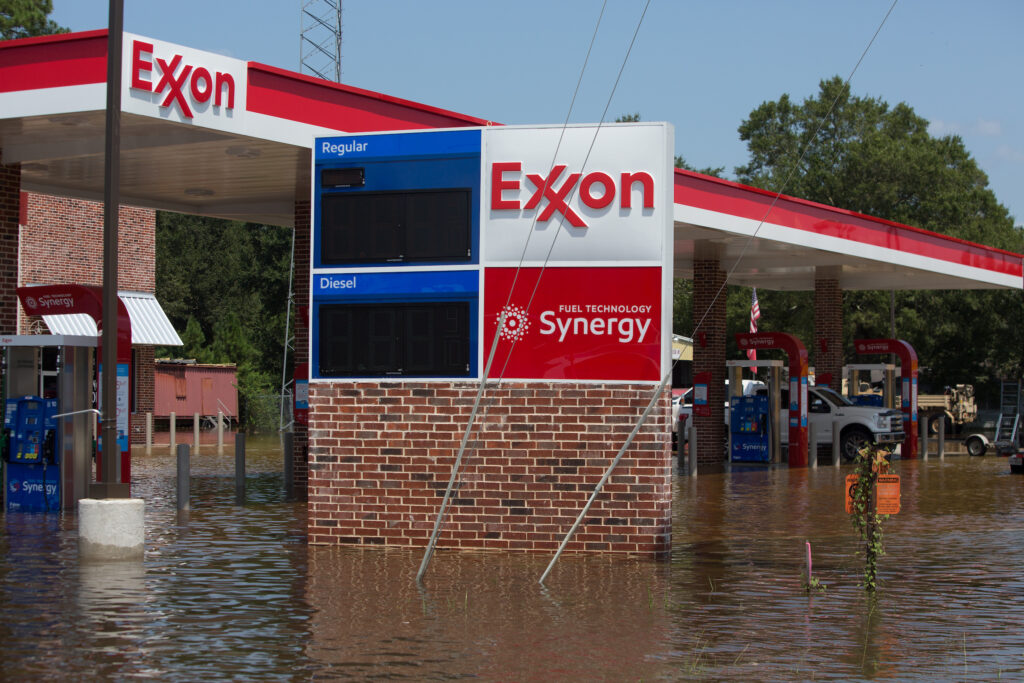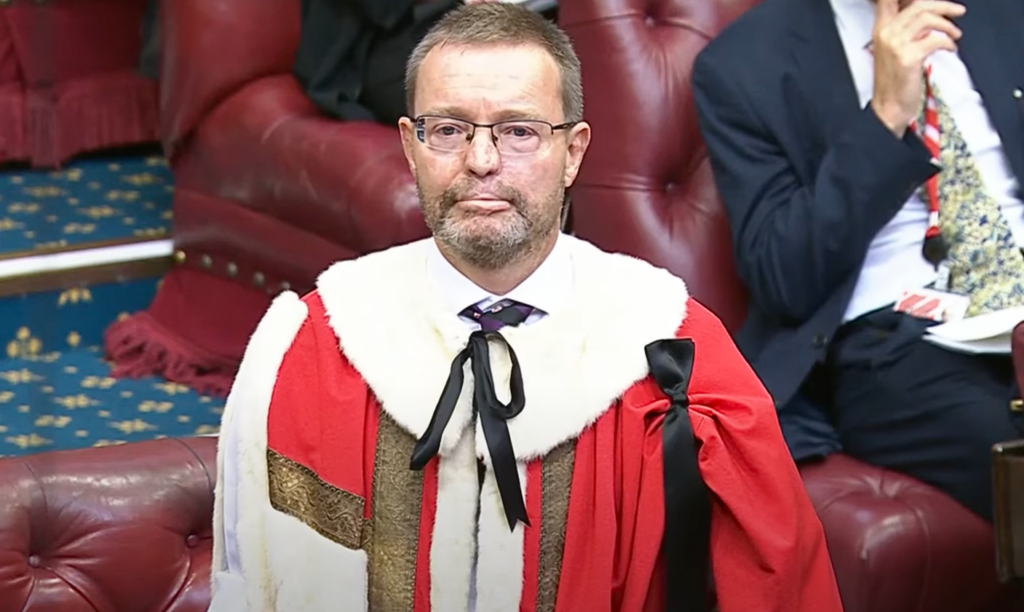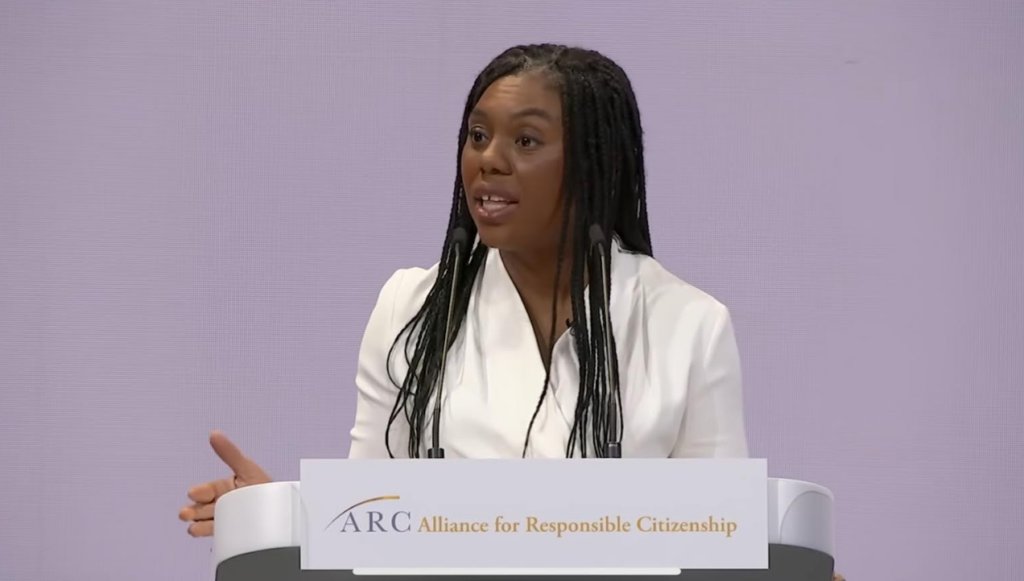Climate science deniers at think tanks with fossil fuel ties are doubling down on attempts to undermine the bases for regulating climate pollution, from attacking estimated carbon pollution costs used in regulatory analyses to urging the U.S. Environmental Protection Agency (EPA) to reverse its own scientific finding that underpins federal climate rules.
Even as experts’ understandings of climate science and the costs of carbon pollution have strengthened significantly, opponents of climate action are publishing flawed studies in scientific journals to support false claims that align with the fossil fuel industry’s deregulatory agenda.
Cherry-picked Study Argues Carbon Pollution Is Beneficial
For example, in January Ross McKitrick, Kevin D. Dayaratna, and Patrick J. Michaels — a trio with ties to fossil fuel funding and a history of downplaying the climate crisis — published a paper in the journal Environmental Economics and Policy Studies that attempts to portray carbon emissions as beneficial, in a departure from robust climate science and economics. Their paper questions the modeling used in calculating what is known as the social cost of carbon (SCC). The social cost of carbon is used in government rulemakings concerning climate and energy and represents the economic damage, in dollars, for emitting an additional ton of carbon dioxide.
This paper argues that current modeling used to estimate the social cost of carbon is inaccurate because the models fail to account for the impact of CO2 on plant growth. The paper also dismisses the possibility of abrupt climatic changes or tipping points and assumes a low level of climate sensitivity to greenhouse gases. According to the paper’s authors, the social cost of carbon should be much lower than official estimates and may even be negative, meaning carbon emissions have a net benefit.
The paper therefore attempts to demonstrate that the SCC is likely negative by manipulating specific parameters in one particular model, known as the FUND model. Those manipulations include inflating the value that CO2 has on plant growth and also minimizing the estimate of climate sensitivity (in other words, assuming global warming will be modest).
According to Kevin Rennert, fellow and director of the Social Cost of Carbon Initiative at Resources for the Future, an environmental think tank, the study lacks credibility because it basically cherry picks modeling parameters to change rather than reassessing the model more comprehensively.
“What these authors have done in evaluating the social cost of carbon is to take one specific model and make two specific changes to it that would have an expected effect,” said Rennert. “What needs to be done to evaluate this question of whether the SCC is too high or too low is to do what the National Academy of Sciences spent two years doing, which is to develop a whole set of changes throughout the entire calculation chain to estimate the SCC.”
Examples of potential economic effects from climate change by 2100 in a 2017 Government Accountability Office report. Credit: GAO, public domain
McKitrick, however, stood by the study’s methods and results. “That isn’t a criticism,” he said of Rennert’s comment.
Although the study has been published in a peer-reviewed journal, its credibility is further eroded by the identity of the authors as affiliated with organizations that have taken fossil fuel industry funding (but who did not disclose any potential conflicts of interest from such funding), and by the fact that this paper has not received attention outside of a small circle of conservative media and climate science-denying organizations.
Kevin Dayaratna, one of the study authors, wrote a commentary on the study for the Daily Signal, a conservative publication owned by the Heritage Foundation, where he works. Another conservative outlet, The American Spectator, ran an article on the study written by Bette Grande, research fellow at the climate science denial group the Heartland Institute and a former North Dakota state representative. The Competitive Enterprise Institute posted about it, as did the Heartland Institute.
Life:Powered — a fossil fuel advocacy campaign and project of the Texas Public Policy Foundation — also highlighted the study with a post that indicates an anti-regulatory objective for undermining the social cost of carbon: “The social cost of carbon, once a purely academic exercise, has been turned into a political weapon to justify any desired regulation. Given this state of affairs, the Trump administration should dispense with the social cost of carbon in its regulatory processes and send it back to the academic realm where it belongs,” Life:Powered wrote.
Rennert noted that the courts have rejected this suggestion that the Trump administration should get rid of the SCC from federal rulemaking. President Trump, however, has weakened the metric by ordering agencies not to use the SCC’s standard calculations developed by an authoritative federal Interagency Working Group.
Climate Science Deniers With Ties to Fossil Fuel Funding
The three authors of this study — McKitrick, Dayaratna, and Michaels — are all climate science deniers and affiliated with conservative think tanks that promote misinformation on climate change.
McKitrick is an economist at the University of Guelph in Canada specializing in environmental economics and policy analysis. He is a former adjunct scholar at the Cato Institute. Currently he is a senior fellow at a libertarian think tank in Vancouver, British Columbia called the Fraser Institute, which has received $120,000 in funding from ExxonMobil and over $1.4 million from Koch foundations.
As DeSmog has documented, McKitrick endorses a declaration that defies basic climate science. That declaration states: “We deny that carbon dioxide — essential to all plant growth — is a pollutant. Reducing greenhouse gases cannot achieve significant reductions in future global temperatures, and the costs of the policies would far exceed the benefits.”
Dayaratna is the principal statistician and research fellow at the Heritage Foundation. Heritage has attacked climate and clean energy policies, sponsored Heartland’s climate science denial conferences, and enlisted noted climate science deniers as policy experts. ExxonMobil has donated over $700,000 to the organization, and Koch foundations have poured more than $6.1 million into Heritage from 1997 to 2017.
Dayaratna has written articles and co-authored reports attacking the Green New Deal (claiming it would be “incredibly costly” with “no meaningful climate benefit”) and other climate policy proposals while arguing for unrestrained fossil fuel exploitation. One 2016 report he co-authored is pure climate science denial, claiming (despite overwhelming evidence to the contrary), that “no consensus exists that man-made emissions are the primary driver of global warming or, more importantly, that global warming is accelerating and dangerous.”
Michaels has long espoused climate science denial talking points and previously worked with anti-science groups funded by the tobacco industry. He is currently a senior fellow at the Competitive Enterprise Institute as well as a senior fellow at the CO2 Coalition, which promotes the idea that increasing carbon dioxide levels would be beneficial and claims the greenhouse gas is being “demoniz[ed].”
CEI has known ties to fossil fuel funding, and Michaels himself has stated, back in 2010, that an estimated 40 percent of his funding comes from the oil industry. ExxonMobil has contributed $2.1 million to CEI since 1997. Koch foundations have spent at least $644,743 between 1997 and 2015, while the recently bankrupt coal company Murray Energy has funded the group to the tune of $200,000.
CEI has not returned a request for comment.
Climate Deniers Seek Repeal of EPA’s Endangerment Finding
Dayaratna and Michaels recently authored another paper, published by CEI, arguing for the EPA to repeal what is known as the Endangerment Finding. In 2009 the agency issued a science-based finding that greenhouse gas emissions endanger public health and welfare.
That finding stemmed from a 2007 Supreme Court ruling that found greenhouse gases to be a pollutant under the Clean Air Act, and that also ordered EPA to make a determination as to whether these gases may reasonably be anticipated to endanger public health or welfare. EPA’s determination that greenhouse gas pollution does endanger public welfare forms the basis for the agency’s obligation to regulate this pollution from sources like vehicles and power plants.
The CEI paper by Dayaratna and Michaels rehashes the same claims and tactics they use in their 2020 paper with McKitrick, namely attacking the modeling used in estimating the social cost of carbon, in arguing that EPA should do away with the Endangerment Finding.
“Both the Endangerment Finding and the support document on which it was established are based on systematically flawed models,” Michaels said in a CEI news release.
“The social cost of carbon estimates vary wildly depending on what assumptions are used to calculate it, and, in the past, lawmakers have deliberately beefed up these assumptions to justify heavy-handed policies that increase energy prices and impose unneeded government restrictions,” Dayaratna added.
Given the economic shutdown from the #COVID_19 crisis, we need to help get our economy up and running. Getting rid of the EPA’s Endangerment Finding would help our energy sector bounce back immediately. Read our latest study here https://t.co/KtESgL55sj
— Competitive Enterprise Institute (@ceidotorg) April 21, 2020
Another expert on the social cost of carbon, Tomás Carbonell, director of regulatory policy and lead attorney at the Environmental Defense Fund, pushed back on the assertion that the modeling is flawed.
“It’s important to note that the social cost of carbon values that the report attacks were developed by an Interagency Working Group made up of technical experts and economists representing twelve federal agencies, and are based on three rigorous, peer-reviewed models that are widely used and accepted by economists focused on climate change,” he told DeSmog.
“The CEI report’s assertion that the social cost of carbon is negative is wildly out of step with the consensus of climate scientists and economists, does not appear to have undergone any form of independent or peer review, and has no credibility,” Carbonell added.
Endangerment Finding Petitions and a Campaign to ‘Save U.S. Coal’
Groups funded with fossil fuel money such as CEI have long tried to discredit the scientific consensus on the climate crisis and have repeatedly petitioned EPA to repeal the Endangerment Finding. CEI and the Texas Public Policy Institute both filed legal petitions on the Endangerment Finding at the start of the Trump administration in 2017, and CEI tried again last year. In 2010 the Obama EPA denied 10 petitions initially challenging the finding, including petitions from CEI, the U.S. Chamber of Commerce, and coal interests like Peabody Energy and the Ohio Coal Association.
The latest petition urging EPA to undo its Endangerment Finding came just two months ago on March 9 from a group called the Center for the Study of Carbon Dioxide and Global Change (“CO2 Science”), another climate denial organization that has received funding from fossil fuel companies such as ExxonMobil and coal giant Murray Energy.
The recent petition appears to be part of a campaign launched earlier this year by the Center for the Study of Carbon Dioxide and Global Change and the coal mining industry publication CoalZoom to “save U.S. coal,” which has been collapsing due to competition from cheap natural gas and renewables. According to the “Saving U.S. Coal” campaign, “For the U.S. coal industry to survive, the CO2 Endangerment Finding must be repealed quickly.” The single objective of this coal interest campaign is therefore to get rid of the greenhouse gas regulatory underpinning that is backed by robust climate science.
According to a December 2018 study published in the peer-reviewed journal Science and led by Woods Hole Research Center and Stanford University, the scientific basis for the EPA‘s Endangerment Finding is stronger than ever.
Study published today by @sciencemagazine, and led by WHRC President Dr. Phil Duffy, has found that scientific evidence supporting the EPA’s 2009 Endangerment Finding for greenhouse gases is now even stronger. Read more: https://t.co/O5rEYWpym5 #EndangermentFinding @StanfordWoods pic.twitter.com/yAMTAri5f5
— Woods Hole Research Center (@WoodsHoleResCtr) December 13, 2018
Attempt to Repeal Endangerment Finding Under a Second Trump Term?
The Trump administration has so far been unwilling to attempt a repeal of that finding. In a March 10 post linking to the Center for the Study of Carbon Dioxide and Global Change’s petition, climate science denier and “junk science” proponent Steve Milloy acknowledged that an attempted repeal “will require a second Trump term.” In the case that President Trump is reelected, it remains to be seen whether his EPA will try to reverse the Endangerment Finding.
“I worry that a Trump unconcerned with reelection will be completely unleashed and could try to undo the Endangerment Finding,” Ann Carlson, professor of environmental law and co-director of the Emmett Institute on Climate Change and the Environment at UCLA Law School, told DeSmog. “But it’s not clear to me he would. For one, he will have lawyers telling him that he’d very likely lose the case. The science is not only so clear but his own federal government has continued to confirm the science in many ways throughout his administration. The National Climate Assessment is a great example as is the answer in the Juliana litigation that the Department of Justice filed,” she said.
“Secondly, he has conservative courts that he will try to use to uphold his rollbacks,” Carlson added. “If he succeeds, he has essentially neutralized the Clean Air Act as a weapon to fight climate change. I could imagine a second Trump administration waiting to see if the courts uphold his rollbacks. If they do, there’s no real need to withdraw the Endangerment Finding. If the Trump administration loses in court, then we could see an attempt to withdraw it.”
Main image: Corn shows the effect of drought in Texas on August 20, 2013. Credit: U.S. Department of Agriculture/Bob Nichols, public domain
Subscribe to our newsletter
Stay up to date with DeSmog news and alerts








